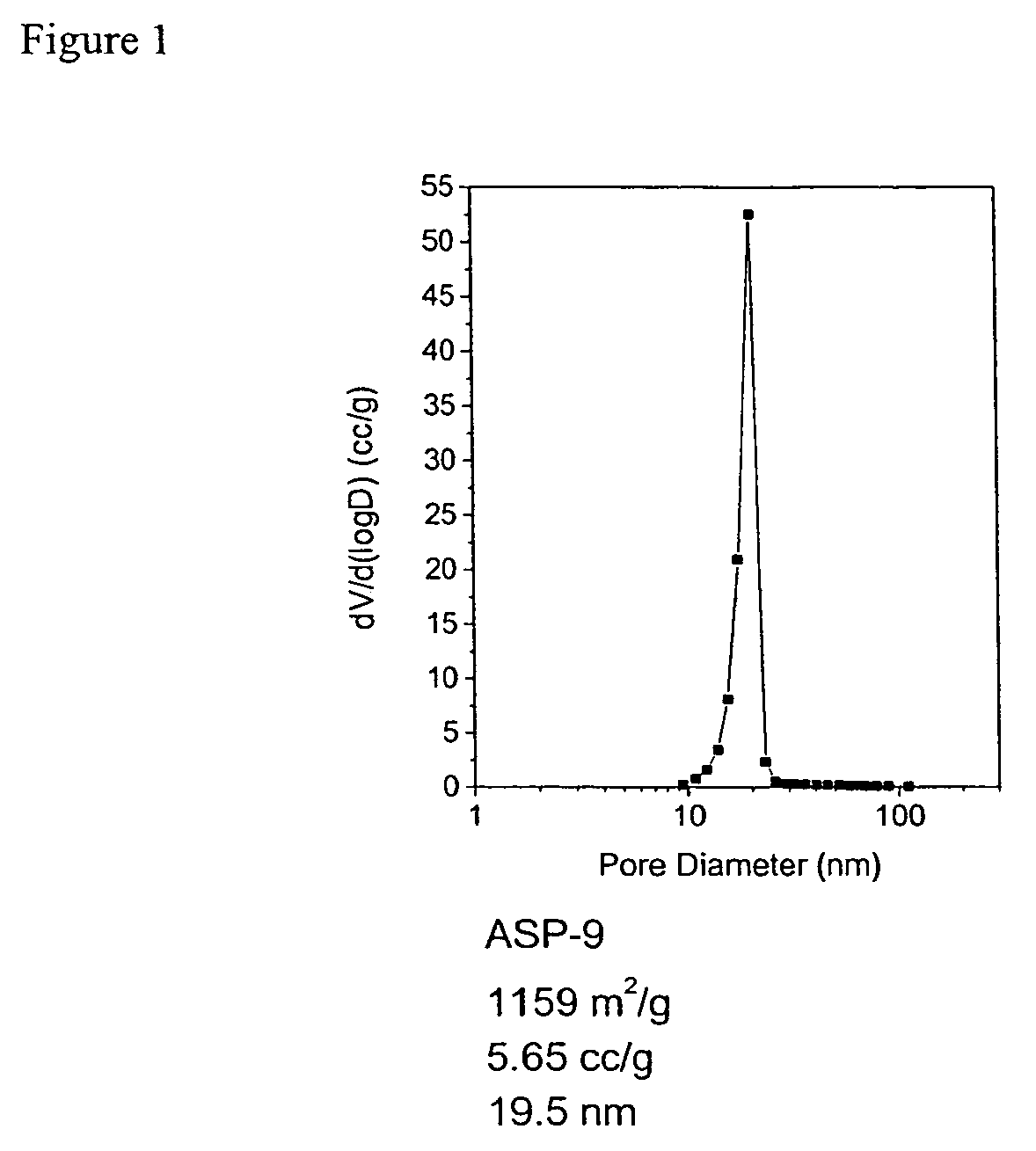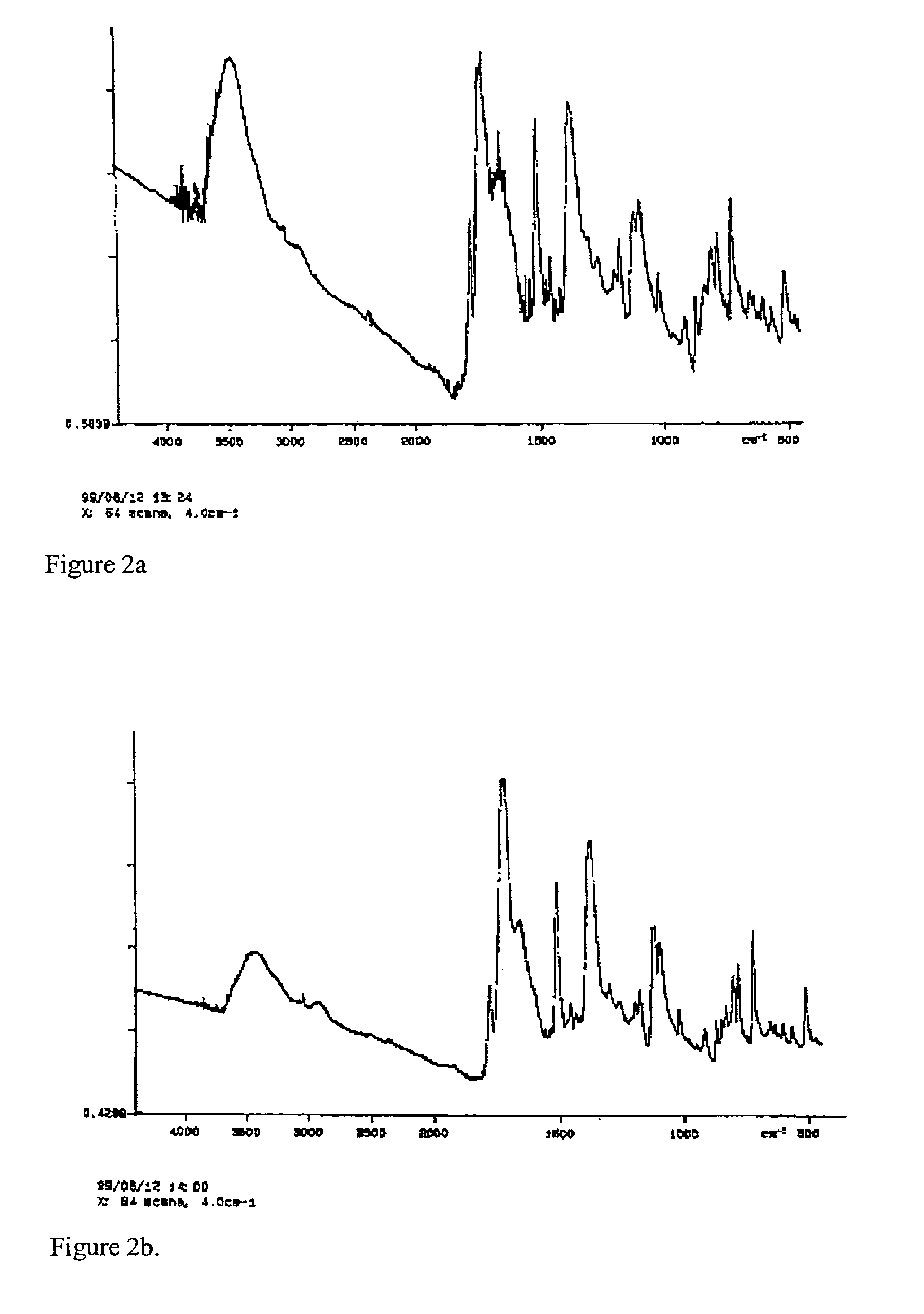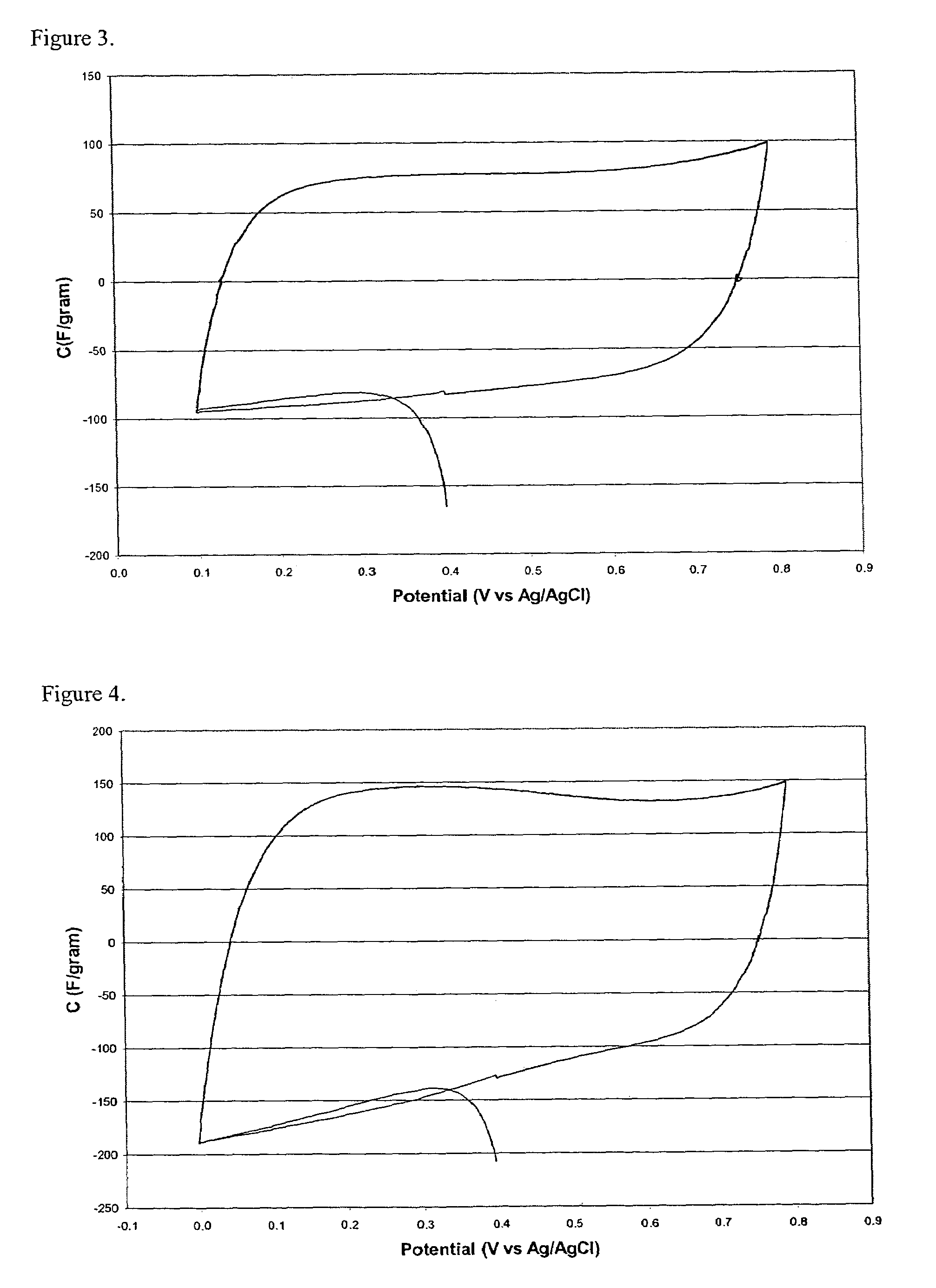Aerogel metallic compositions
a technology of metallic compositions and aerogels, applied in the field of aerogels, can solve the problems of weakened gels, insufficient mechanical strength of gels to yield low-density polyimide aerogels, and mechanical weakening of gels, and achieve superior physical and electrical properties, and reduce nitrogen content.
- Summary
- Abstract
- Description
- Claims
- Application Information
AI Technical Summary
Benefits of technology
Problems solved by technology
Method used
Image
Examples
example 1
Preparation of poly(amic acids)
[0161]1,2,4,5-benzenecarboxylic dianhydride (0.018 mole, 3.928 grams) and 4,4′-oxydianiline (0.018 mole, 3.604 grams) were dissolved in 68 grams of NMP solution at about 10% solid concentration. The reaction of poly(amic acids) was carried out at ambient temperature with constant stirring under protection of argon for overnight.
example 2
Preparation of Polyimide Aerogel
[0162]5.0 grams of poly(amic acids) solution from Example 1 was diluted with 20 grams of NMP to prepare a wet gel at concentration of 0.02 grams / cc. 0.78 grams of acetic anhydride (AA) (molar ratio to dianhydride: 5:1) and 0.60 grams of pyridine (PY) (molar ratio to acetic anhydride: 1:1) were added to the reaction system. A polyester fiber blanket was placed in the gel for reinforcement. It took less than 3 to 4 hours to gel. The gel was post cured initially at 90° C. for 2 hours and then at 190° C. under pressure of 800 psi for ½ hours. The original solvent in the gel was exchanged with ethanol 2 to 3 times followed by supercritical CO2 drying. The thermal conductivity of the sample was 15.3 mW / m*K.
example 3
Preparation of Polyimide Aerogel
[0163]12.5 grams of poly(amic acids) solution from Example 1 was diluted with 12.5 grams of NMP to prepare a wet gel at concentration of 0.05 grams / cc. 1.96 grams of acetic anhydride (AA) (molar ratio to dianhydride: 5:1) and 1.52 grams of pyridine (PY) (molar ratio to acetic anhydride: 1:1) were added to the reaction system. It took less than 1 hour for the sample to gel. The gel was post cured in a pressurized autoclave at 210° C. and 800 psi for 2 to 3 hours. The original solvent in the gel was exchanged with ethanol 2 to 3 times followed by supercritical CO2 drying.
PUM
| Property | Measurement | Unit |
|---|---|---|
| pore size | aaaaa | aaaaa |
| density | aaaaa | aaaaa |
| concentration | aaaaa | aaaaa |
Abstract
Description
Claims
Application Information
 Login to View More
Login to View More - R&D
- Intellectual Property
- Life Sciences
- Materials
- Tech Scout
- Unparalleled Data Quality
- Higher Quality Content
- 60% Fewer Hallucinations
Browse by: Latest US Patents, China's latest patents, Technical Efficacy Thesaurus, Application Domain, Technology Topic, Popular Technical Reports.
© 2025 PatSnap. All rights reserved.Legal|Privacy policy|Modern Slavery Act Transparency Statement|Sitemap|About US| Contact US: help@patsnap.com



